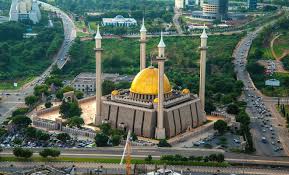Clean-Up Nigeria (CUN), a Non-Governmental Organisation (NGO) on Tuesday announced Kogi State as the dirtiest state, Abuja cleanest city, while Akwa Ibom emerged the cleanest state in the country.
Prince Ene Baba-Owoh Jr. National Coordinator/Secretary, National Technical Study Group of the organisation, disclosed this is in Abuja at a virtual meeting on the state of Nigeria’s environment.
Baba-Owoh said that the study was scored on five performance indicators via physical verification which accounted for 20 per cent and the deployment of GEO-Eye-1 satellite.
He said that GEO-Eye-1 satellite had the highest resolution imagery system in the world.
“GEO-Eye-1 satellite is able to collect images with a ground resolution of 0.41 metre (16 inches) in panchromatic and multi spectral from the orbit every quarter year round.
“It gives accurate reliable data that is applied to the five performance indicators as highlighted as follows: streets/road cleanliness, 30 per cent.
“Vegetation/drain controls, 20 per cent, waste management service, 30 per cent, public opinion poll and social media, 10 per cent.
“Also, knowledge, attitude and practice of hygiene and sanitation of the people, 10 per cent, totalling 100 per cent.
“The 2020 study ran from December, 2019 to November, 2020 with quarterly evaluation,” Baba-Owoh said.
He said that Ebonyi State came a distant second, scoring 44 per cent to Akwa Ibom’s 80 per cent.
“Lagos, Bauchi, Federal Capital Territory, Cross River, Rivers, Plateau, Niger and Ekiti States were placed third to 10th respectively in descending order.
He said the study was conducted by CUN with the support of global project partners from Canada, USA, Germany, France and Australia.
Baba-Owoh said that the study observed a significant drop in the level of waste management in the country.
He urged all tiers of government to collaborate with other relevant stakeholders for effective waste management to improve hygiene and sanitation.
The coordinator noted that Nigerians living in unclean environment had increased from 68 million in 2019 to 170 million in 2020.
He said that the most disturbing information was that Nigeria still remained the Number One country in the world in the practice of open defecation.
“In terms of waste management privatisation which is part of the millennium set goals with 2020 as deadline, many states government are still far from achieving the goal.
“Most are directly involved in the management of waste rather than privatising it which would have improved service delivery,” Baba-Owoh.
He said the organisation observed that the informal sector operators of waste recycling and reuse enterprises recorded lower patronage, which was about 37 per cent in 2020 as against 43 per cent in 2019.
Baba-Owoh said CUN urged the government to improve salary and wages structure for environmental health workers as they were faced with job hazards.
He said the organisation also called for the setting up of more health and environment clubs in schools.






